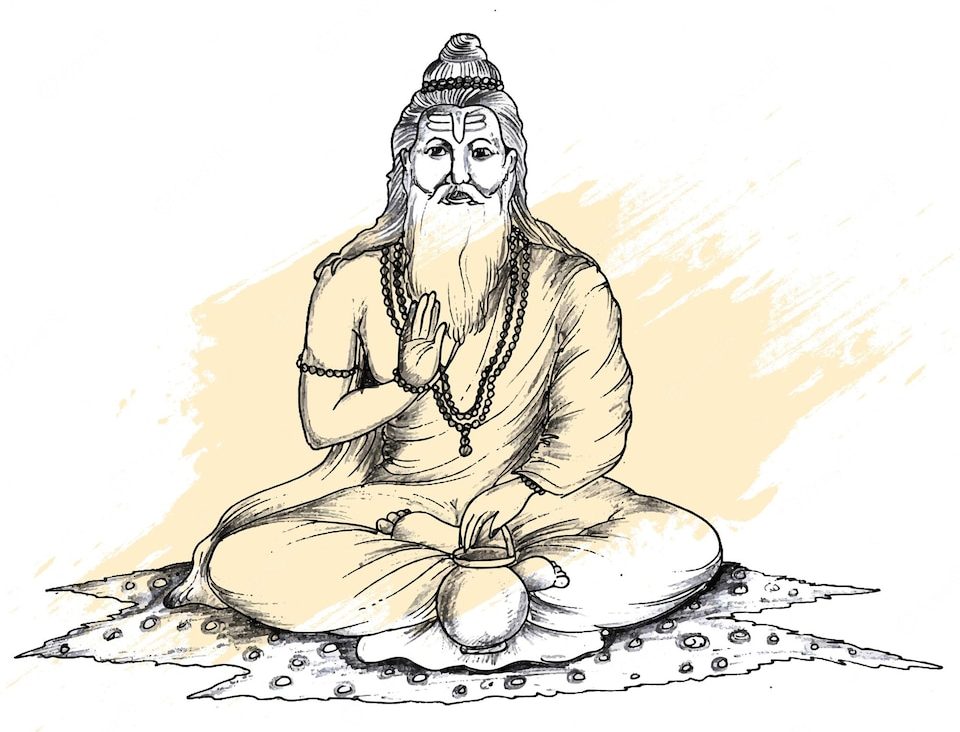
Maharishi Pulaha
Unveiling the Life and Teachings of the Revered Sage
Introduction:
Maharishi Pulaha, a prominent sage in Hindu mythology, is revered for his profound wisdom and spiritual contributions. His life journey exemplifies the path of self-realization and divine communion. In this article, we will explore Maharishi Pulaha’s early life and education, delve into his career as a sage and teacher, shed light on his relationship with the gods, discuss his disciples, examine his contributions to Hindu culture, reflect on his lasting legacy, provide an overview of his impact on Hinduism, highlight notable books attributed to him, and conclude with a reflection on his profound significance.
Early Life and Education:
The early life of Maharishi Pulaha, like many sages, is steeped in myth and legend. According to ancient scriptures, he was born into a pious family and received an exceptional education in the sacred scriptures and spiritual practices of Hinduism. Maharishi Pulaha displayed a natural inclination towards spiritual pursuits from a young age, dedicating himself to the study of ancient texts and engaging in rigorous meditative practices. His deep yearning for spiritual enlightenment paved the way for his remarkable journey as a sage and teacher.
Career as a Sage and Teacher:
Maharishi Pulaha’s career as a sage and teacher was characterized by his deep wisdom and ability to impart spiritual teachings to his disciples. He traveled extensively, disseminating spiritual knowledge and guiding seekers on the path of self-realization. Maharishi Pulaha emphasized the importance of inner transformation and the realization of one’s divine nature. Through his profound teachings, he inspired countless individuals to awaken to their true spiritual essence and live a life of harmony, compassion, and selflessness.
Relationship with Gods:
Maharishi Pulaha had a profound relationship with the gods, characterized by his deep devotion and unwavering faith. It is believed that through his intense spiritual practices and selfless service, he gained the favor of the divine beings. Maharishi Pulaha’s relationship with the gods allowed him to access higher realms of consciousness and receive divine revelations, which he shared with his disciples and the wider spiritual community. His communion with the gods infused his teachings with divine grace and transformative power.
Other Disciples:
Maharishi Pulaha attracted a devoted circle of disciples who were inspired by his spiritual teachings and sought his guidance. These disciples, from diverse backgrounds, were united in their quest for spiritual realization and enlightenment. Under Maharishi Pulaha’s tutelage, they received profound spiritual insights, practical guidance, and transformative practices. These disciples became torchbearers of his wisdom, spreading his teachings and inspiring others to embark on their own spiritual journeys.
Contributions to Hindu Culture:
Maharishi Pulaha made significant contributions to Hindu culture through his teachings and spiritual insights. His emphasis on self-realization, moral values, and spiritual discipline continues to shape the philosophical traditions of Hinduism. Maharishi Pulaha’s teachings fostered a deep understanding of the interconnectedness of all beings and emphasized the importance of living in harmony with nature and the cosmos. His teachings enriched Hindu culture by promoting spiritual growth, moral values, and the pursuit of inner transformation.
Legacy:
Maharishi Pulaha’s legacy in Hinduism is marked by his profound spiritual wisdom and his role as a guiding light for seekers. His teachings continue to inspire spiritual aspirants, providing them with guidance and inspiration on their quest for self-realization. Maharishi Pulaha’s emphasis on inner transformation and divine communion serves as a reminder of the spiritual potential inherent in every individual. His legacy lives on through the teachings and practices of his disciples, who carry forward his wisdom and continue to impact the lives of seekers.
Overview of Contribution in Hinduism:
Maharishi Pulaha’s contribution to Hinduism lies in his ability to awaken individuals to their true spiritual nature and inspire them to lead a life of righteousness and spiritual growth. His teachings emphasize the importance of self-realization, devotion, and ethical conduct as essential elements of the spiritual journey. Maharishi Pulaha’s insights into the nature of existence, karma, and the divine essence have greatly enriched the philosophical and spiritual landscape of Hinduism.
Books Written by Him:
While Maharishi Pulaha’s teachings have been primarily transmitted through oral tradition, several scriptures and texts attribute profound insights and teachings to him. These texts, such as “The Divine Path of Self-Realization,” “The Eternal Wisdom of Maharishi Pulaha,” and “The Sacred Teachings of the Sage,” encapsulate his spiritual wisdom and offer seekers a profound understanding of the nature of reality and the path to liberation.
Conclusion:
Maharishi Pulaha, with his profound spiritual wisdom and devotion to the divine, occupies a revered place in Hindu mythology. His early life and education prepared him for his role as a sage and teacher, guiding countless seekers on the path of self-realization. His deep relationship with the gods and his dedicated discipleship further enhanced the impact of his teachings. Maharishi Pulaha’s contributions to Hindu culture are profound, shaping the philosophical and spiritual traditions of the religion. His legacy continues to inspire seekers to embark on their own spiritual journeys, seeking self-realization and communion with the divine. As we reflect on the life and teachings of Maharishi Pulaha, we are reminded of the transformative power of spiritual wisdom and the potential for enlightenment within each of us. May his profound teachings guide us on our quest for self-discovery and spiritual awakening.
Editor – Kaalchakra Team
[ Note – Before Concluding anything as a Finale, Please Go through Original Scriptures of Vaidik Literature Written in Sanskrit and Also with Meaning of That time of Language. Because English is a Limited language to Explaining the Deeper Knowledge of Vaidik Kaal. ]
